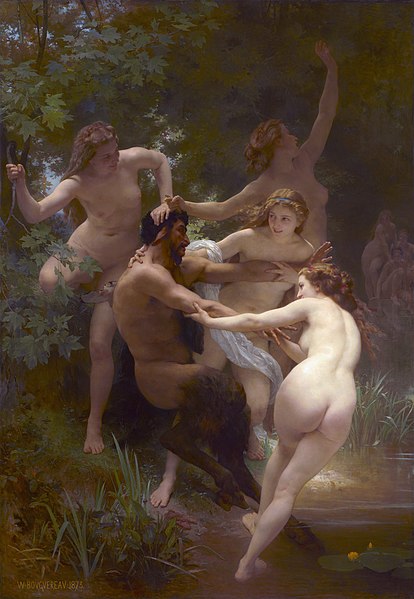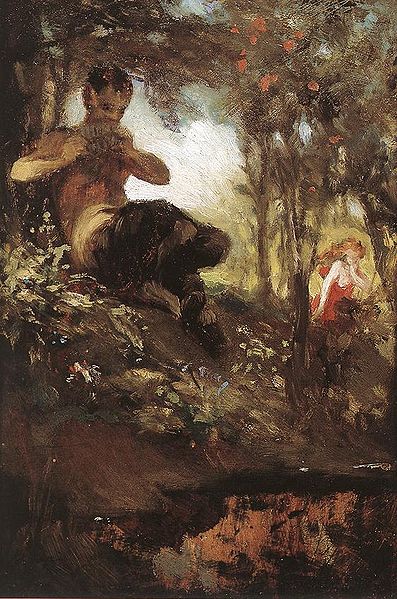In the book "The Scarlet Letter" the devil hides in the wood, bargaining with people for their souls, and when a deal is struck he has them sign the agreement in blood. This motif of a forest spirit bargaining with people's lives, of a spirit in the woods which seeks to bind people to themselves with contracts signed in blood is one of the most common in Eurasia, and it is far older than Christianity.
Although the forest gods of ancient Europe and Siberia often became the devils of later folklore. Many aspects of their character remained in the fairy tales told about them. Rumpelstiltskin, and others really did want to buy children from their parents. Others sought to buy the parents themselves, and perhaps most importantly their was something both sinister and kind about their nature.
Some of the most important aspects of the forest spirit include;
1 - The forest represented freedom and serenity.
Among nearly any people the forest represents freedom, a sacred space, and food. For example, among the Selkup a satyr like being, with goat horns and legs, would teach women how to hunt so that they could be free of their husbands, free of society.
Many figures, from Robin Hood to countless Germanic Rebels were given their cause by the forest gods. Told to help the poor find a better life.
In Japanese women would flee their villages to live with mountain kami.
While in Kalasha lore the wilderness (especially the mountains) were a sacred space where men would commune with the deities.
2 - The Devil's Bargain
Fairies needed people to act as workers for them. They would take people to weave cloth, serve them at their parties, act as maids, herd their cattle, take care of their children, etc. Because of this they would often make bargains with people, promising them wealth for a given amount of time, in return for the agreement that the person would than work for the fairy thereafter. In essence the forest spirits would buy the persons soul.
In lore those who made this or other deals with the forest spirits would often try to get out of it through trickery or magic. Human's after all have the power to use symbols and words to drive away certain spirits. In ancient pre-Christian Rome for example, people would sweep to drive away nature spirits.
Thus in places such as Brittany people would make a bargain with forest spirit, but when the time came to pay the forest spirit their due they would seek out a priest or someone else who could drive away the spirit to keep them safe.
Other forest spirits such as Rumpelstiltskin and Merlin which bought children from Kings, were likely doing so in order to raise the future king, and so help humanity.
3 - Forest spirits cared about humanity, and often times even taught humans how to create civilization.
They would create shamans and cunning folk (good witches). In one Russian prayer people would plead with the forest spirit to help them win fist fights.
Robin Hood figures throughout Eurasia would be approached by forest spirits who wanted to use them to help the peasants.
(See European Shamanism to learn More)
4- Yet at the same time forest spirits represented danger, the fear of the unknown. People will go into the woods and vanish, children get lost in the woods, in Siberia there are countless tales of people coming across ghost villages, where the people were presumed to all have been taken away by the forest.
Forest spirits were both good and evil, creative and destructive. They brought illness and blessings.
5 - Guardians of the afterlife
Often times at least one of the afterlives was contained within the forest or mountains. This meant that the spirits of the wilderness were often the deities of the afterlife. They would punish those who deserved to be punish, while rewarding others with eternal parties.



















0 comments:
Post a Comment